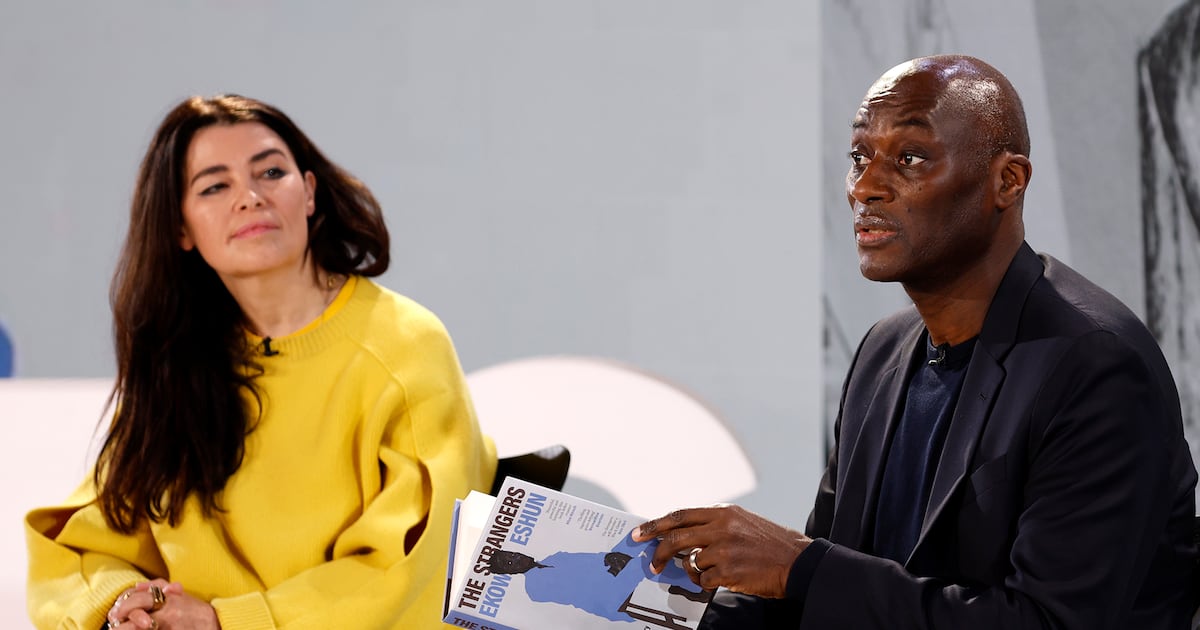
The author has shared a Podcast.You will need to accept and consent to the use of cookies and similar technologies by our third-party partners (including: YouTube, Instagram or Twitter), in order to view embedded content in this article and others you may visit in future.
Subscribe to the BoF Podcast here.
Background:
In an intimate conversation at BoF VOICES 2024, world-renowned stage designer Es Devlin and writer and cultural curator Ekow Eshun discuss the transformative potential of human connection.
Emerging from a desire to confront her own biases, Devlin’s “Congregation” project invited 50 Londoners from immigrant backgrounds to be drawn and displayed inside St. Mary le Strand church in London. Eshun’s new book, “The Strangers,” likewise interrogates racial identity and belonging through the stories of five Black men spanning centuries and continents.
“I’m not the same person at all,” says Devlin, reflecting on her experience. “I’m a bit more raw as a consequence of writing [The Strangers] because … you have to open yourself up to pain and fraughtness,” adds Eshun.
Devlin and Eshun investigate how “otherness” shapes our sense of belonging and argue that true understanding requires a radical willingness to open ourselves to one another — and, in the process, rediscover parts of ourselves.
Key Insights:
- For Devlin, bridging cultural divides begins with a fearless self-examination: “I wanted to encounter my own racism, my own bias, my own separation.” Considering how certain immigrants are welcomed while others are rejected, she admits, “If it’s at work in my community, it must be at work in me. It must be work in my very person. Whether I think it is or not, I must encounter it.”
- Creative inquiry can be a path to self-discovery. “Almost any creative exercise in the end becomes about one trying to meet what’s inside you. … You have to open yourself up to pain, to fraughtness,” Eshun explains.
- For Eshun, genuine unity demands more than rhetoric — it requires a purposeful willingness to understand and embrace our differences. “It’s easy enough to say, we’re all one people … but to do that, you have to do some work along the way. That work is a self revelatory work, but it’s also a work of active imagination. It’s also a work of broad empathy. It’s also a presumption of intimacy or connection, which I think is sometimes hard to get to.”

